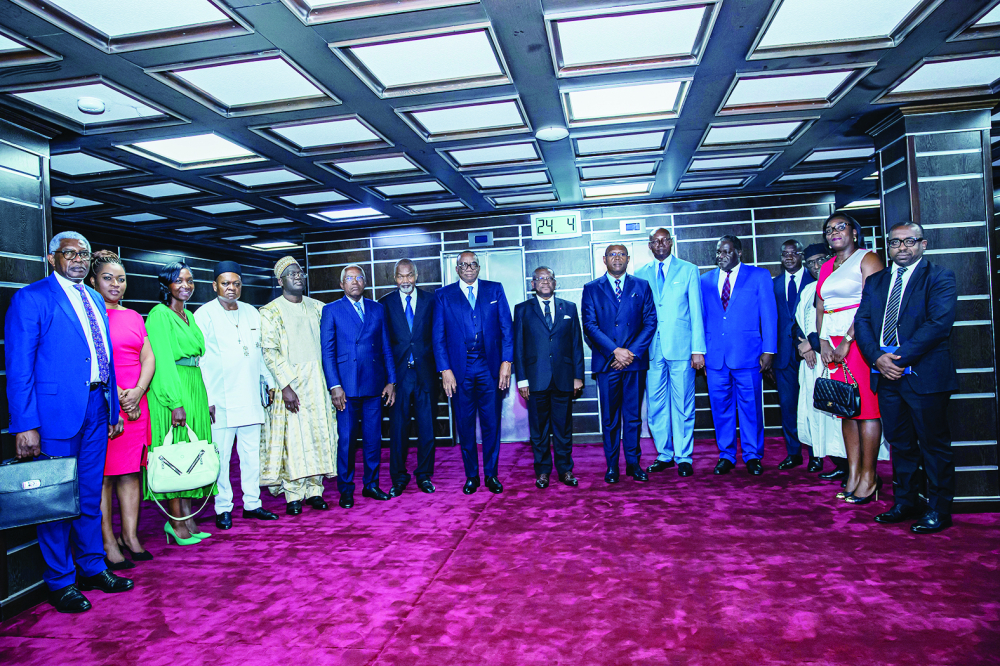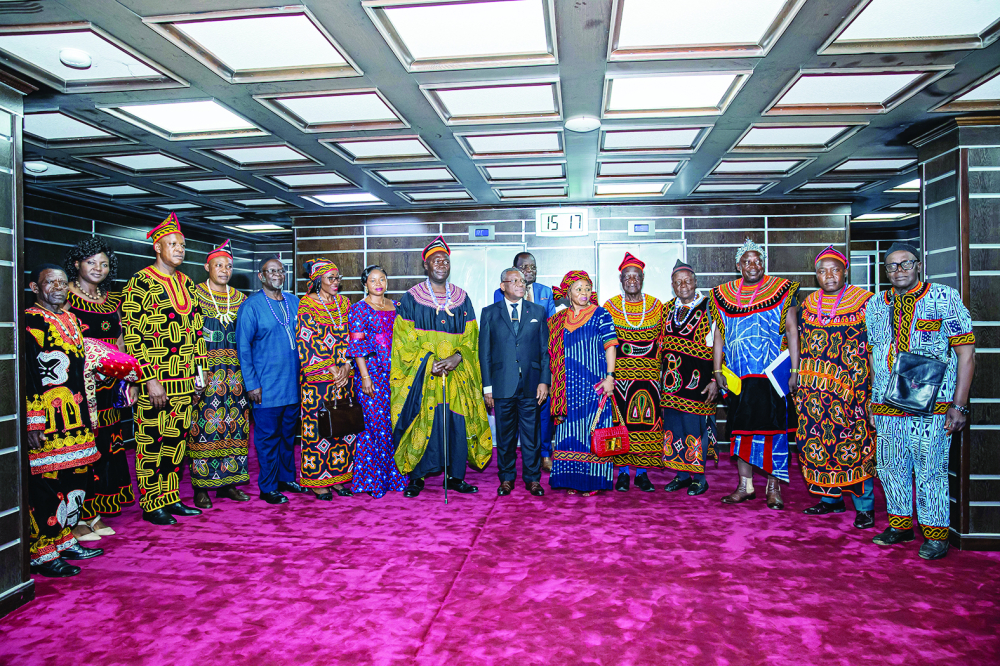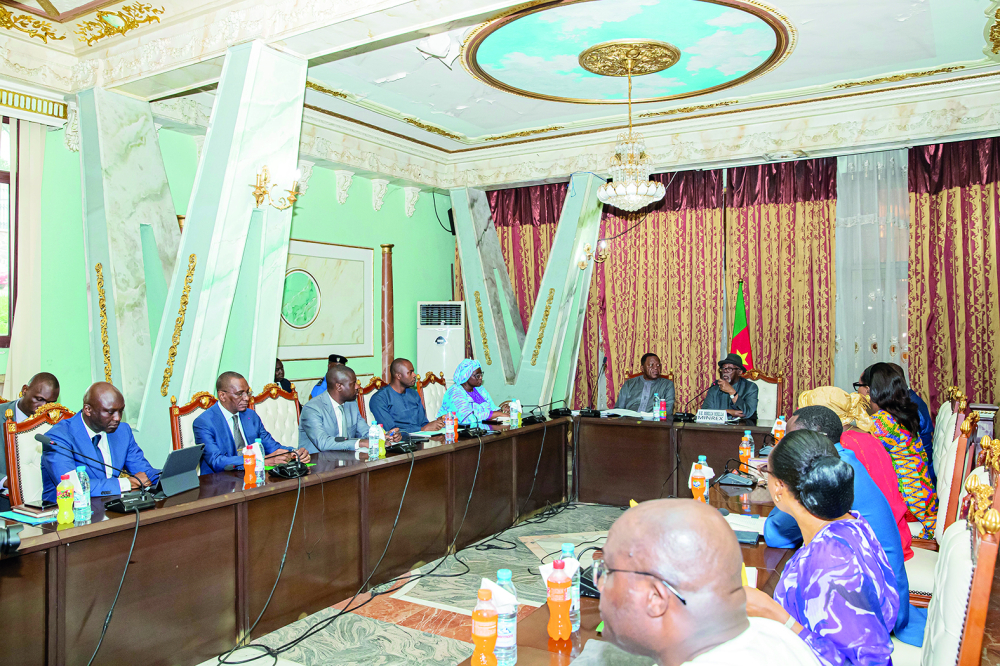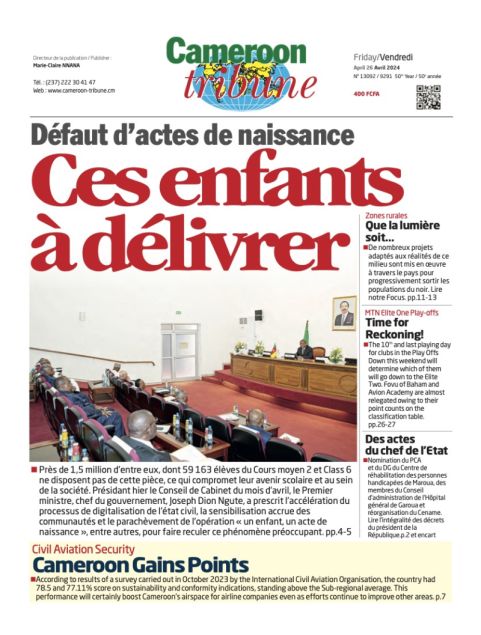Politics In School Can Be Bad Business!
- Par Richard Kometa
- 05 sept. 2022 11:57
- 0 Likes
Students begin a new academic year today 5 September, 2022 with determination to make their lives better through hard work.
Later in life, they will definitely be called up to hold various positions of responsibility. But this can only happen after they acquire knowledge, build their own opinion about issues, the choices to make, and also take informed decisions about their career options. As such, some may even become politicians. Why not?
Yet, news last week of the walls of a primary school being painted in the colours of a political party sounded like a horror tale to many judging from the reactions in the social media and other outlets. The story goes that the walls of three blocks in the Group One section of Government Primary School New-Deido in Douala were painted in the colours of the Social Democratic Front (SDF) party. Tongues started wagging. The debate made rounds in the social media and other communication channels. It took the intervention of the local administrative authority for the party colours to be changed from the school building. The work was reportedly at the behest of the party`s Member of Parliament who initiated renovation efforts on the institution. It is definitely laudable to want to render the premises of an educational institution attractive to welcome students as they begin another academic year in quest of better horizons.
Those who have been asking questions about the choice of colours may even have to wonder further why the option was taken now in the first place. The institution has certainly existed for long and it could be that the dilapidating structures must have attracted attention from the MP who immediately saw an opportunity to help. Good initiative indeed! With over 300 political parties in the country, if each were to assist schools and ensure that their party emblems are visible on academic institutions, such a scenario would hardly provide enough space for everyone. A most likely consequence here would be creating an atmosphere of total confusion in the minds of pupils across the country.
Another legitimate worry has to do with the real or imaginary motivations of such a decision. Could it be to expect some thank you message to be addressed to the MP or his party? Could the idea be to keep away the government from taking responsibility as the guarantor of State institutions? Or a simple question of impacting the minds of those in the school vicinity to see the colours each day and remember to cast their votes for the party? The questions may never have answers. Whatever the case, it is clear that political differences are not always easy to handle. And getting children involved at such a tender stage can be a game into the unknown.
All thinkers from Plato, Socrates, Aristotle, who are credited as precursors of educational philosophy have never departed from the “Socratic method” of questioning. This began a tradition by which `reasoning` and the search for reasons that might justify beliefs, judgements, and actions was (and remains) fundamental. It means that education and the actions that take place around those being taught should lead to the pursuit of the life of reason. That is, students and persons in school must be able to ask questions and receive answers as to why certain decisions and issues are done in society. If such responses were to end at the level of paying back political parties and not the State, it could be problematic in cases where such individuals fail in future to throw their weight behind to such apparent benefactors.
Academic institutions already have inbuilt values to mould kids into adults capable of contributing to societal wellbeing. Civic education, as it was known in the past in Cameroon, and Citizenship lessons today are subtle ways of building learners’ notions of reasonable political choices when they grow up. Democratic guidelines on freedom of choice, responsible citizenship, and so on are more valuable to students and pupils while in school than anything else. By serving as class heads, school head boys and girls and holding other positions in their school environments, pupils get some vital skills that can take them into better leadership roles in future. It does not require heavy-handed political...
Cet article complet est réservé aux abonnés
Déjà abonné ? Identifiez-vous >
Accédez en illimité à Cameroon Tribune Digital à partir de 26250 FCFA
Je M'abonne1 minute suffit pour vous abonner à Cameroon Tribune Digital !
- Votre numéro spécial cameroon-tribune en version numérique
- Des encarts
- Des appels d'offres exclusives
- D'avant-première (accès 24h avant la publication)
- Des éditions consultables sur tous supports (smartphone, tablettes, PC)














Commentaires